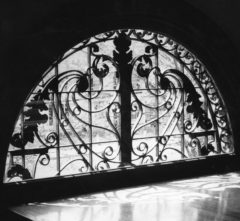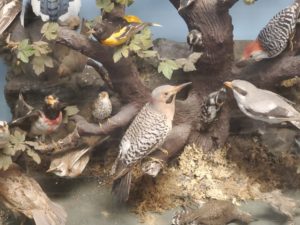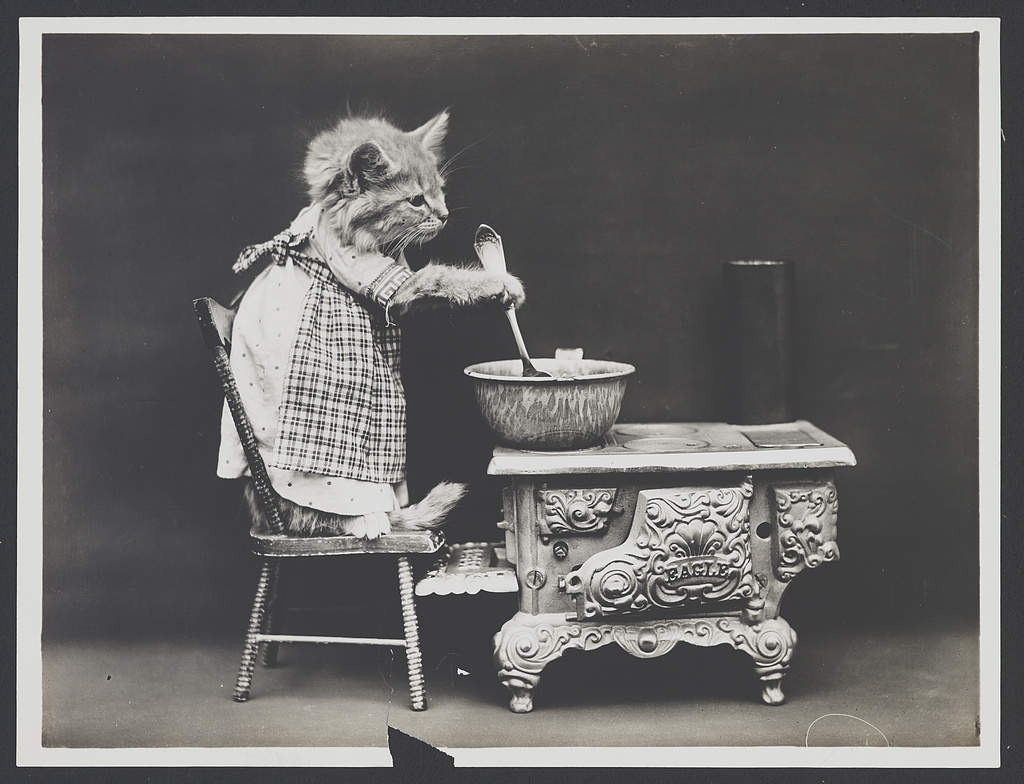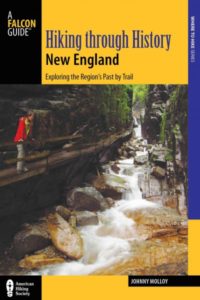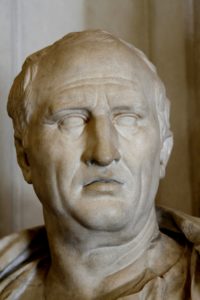
The Meaning of Life
In a past newsletter, I posed three BIG questions that I believe we should periodically ask ourselves over the course of our lives, and I have been addressing each one in a series of newsletters.
This issue brings us to the final—and perhaps most profound and potentially vexing—question: What is the Meaning of Life?
Several years ago, my family and I were eating dinner when one of my teenage daughters casually asked out-of-the-blue, “What’s the meaning of life?” Conversations about history, art, and culture were fairly normal at our dinner table—not surprising given the father!—but rarely did we venture into such big philosophical territory. So I amazed myself when I immediately blurted out an answer that I have yet to be able to discredit.
Now before I reveal what I said, I should provide the caveat that I realize there are many ways to answer the question of the Meaning of Life. Mine is one of them. And I am not even going to argue that what I am about to propose is the most important or best way to answer the question. But here it goes.
What I said to my daughter at that moment is that the Meaning of Life comes from how we participate in the flow of history. Some of us serve in town government (like maybe a library) or are members of a civic organization—like the Rotary Club or the Garden Club—just like other people who have lived in towns both now and before us. Some of us work at, or even own, a business in town, and in doing so we join the many people who have done the same. Others of us commute into Boston or Worcester or some other city. Some of us belong to successive generations who have lived in Westborough, while others of us have moved into town to raise our kids and put them through a good school—and then plan to put out a “for sale” sign on the front lawn as soon as they go off to college. In each case, as we live out our lives we join a pattern of existence that comes together to form our collective history.
Here is how powerful this insight is: our participation in this flow of history is not voluntary. We play our role and create meaning from this participation no matter how we live out our lives, whether we are conscious of doing so or not.
And to show you how strong the patterns of history are, even my “original” insight into how our participation in history forms a basis for understanding the Meaning of Life turns out to be not so original after all. I later discovered that over two thousand years ago, Cicero mused, “For what is the worth of human life, unless it is woven into the life of our ancestors by the records of history?” Rats! I thought I was the one who had finally cracked the Meaning of Life code!
Now you may say, “Ha! What if I decide to withdraw from society and ‘disappear’? Then I will no longer be participating in the flow of history.” To which I will respond, “Yes, but in doing so you are still leaving a mark on society by virtue of your absence. And besides, you will be joining a long list of people from the past who have tried to do just what you are proposing, Henry David Thoreau being just one example of someone who famously dabbled in living as a hermit.”
This view on the Meaning of Life can also account for profound social change. Many people who lived in Westborough used to work in bustling factories in the middle of town. Most of those factories are long gone. But their absence today does not counter the fact of their previous existence, and the people who worked in those factories long ago continue to bequeath meaning to us today by virtue of their participation during an important moment in our town’s history. As proof, we have photographs and other documents that record and capture this history of a time that now seems so foreign to us. These photographs and records also teach us that we have the power to shape our own history by actively documenting and preserving evidence of our lives today, and by doing so, we are at the same time fortifying meaning both for ourselves and for others.
When I first proposed my three BIG questions at the beginning of this series, I said not to worry, I would eventually return to local history despite the elevated nature of my questions. And here we are: The humble practice of local history is nothing less than the practice of maintaining and making available tools for gaining a fuller understanding of the meaning of our individual lives. And the records that we capture and preserve today will in the future give generations the ability to reflect on their own Meaning of Life by allowing them to see how and where they fit into the flow of history.
How do you derive meaning in your life? Share your own philosophy in the Comments section.
–Anthony Vaver, Local History Librarian
* * *
The Westborough Center is open again for research! . . . along with the expansion of WPL hours and services.
Now that the WPL is open more hours and is lifting its time limit for being in the building on Tuesday (4/20/2021), the Westborough Center is once again able to accommodate people looking to use its local history print collections.
As always, appointments to use the collections are encouraged in order to give me time to gather needed research materials before a visit (e-mail Anthony Vaver at avaver@cwmars.org or call 508-871-5284). At present, researchers using print materials will be set up in an isolated part of the main room, and once the local history librarian is fully vaccinated in mid-May, they will be given a choice of using materials inside the Westborough Center instead. In general, there will be added study tables and study carrels (all socially distanced) in the WPL starting on Tuesday.
I am currently working on a new main exhibit in the Westborough Center, which is why the walls will temporarily be so bare, but I hope to have it up by the time the WPL fully reopens in May or June.
We’re getting there . . .
* * *
Join the Westborough Historical Society on Monday, April 26 at 7 p.m. on Zoom for “The Legacy of Birding in Westborough.”
In these times of COVID, bird-watching in the serenity of nature has become a popular pastime. Edward Howe Forbush (1858-1929) lived in Westborough, became the state ornithologist in 1908, and was a founder of the Massachusetts Audubon Society. The Westborough Library’s case of taxidermied birds is a product of his expertise at age 18. Society President Kathy Cavaliere will reveal the fascinating career of Edward Forbush.
Continuing that bird-watching legacy, Wheaton Biology Professor Scott Shumway of Westborough Community Land Trust (WCLT) and local ornithologist Sean Williams, Visiting Assistant Professor at Holy Cross, will also describe different habitats and their favorite sites for birdwatching in Westborough.
This program is co-sponsored by the Westborough Community Land Trust and the Westborough Historical Society.
Register in advance for this meeting: https://us02web.zoom.us/meeting/register/tZAqceGrrDopHtMFiPixkVRU1lArtXW7AC27
* * *
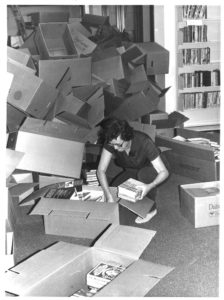
The first Friends of the Library Book Sale of 2021 will be on Saturday, May 1 from 10 a.m. to 3 p.m. on the front and side lawn of the library. Books, CDs, DVDs, and other items will be available. All adult books and merchandise are $1 each, and all children’s items are 50 cents!! Cash and checks accepted. Masks are required and please follow social distance recommendations. (Rain date is May 8.)
Donations will be accepted curbside at the Parkman Street entrance on Saturday, April 17 from 10 a.m. to noon. Please drive up and there will be people to help remove donations from your car. Masks are required.
* * *
Did you enjoy reading this Westborough Local History Pastimes newsletter? Then subscribe by e-mail and have the newsletter and other notices from the Westborough Center for History and Culture at the Westborough Public Library delivered directly to your e-mail inbox: https://www.westboroughcenter.org/subscribe-to-updates/.
